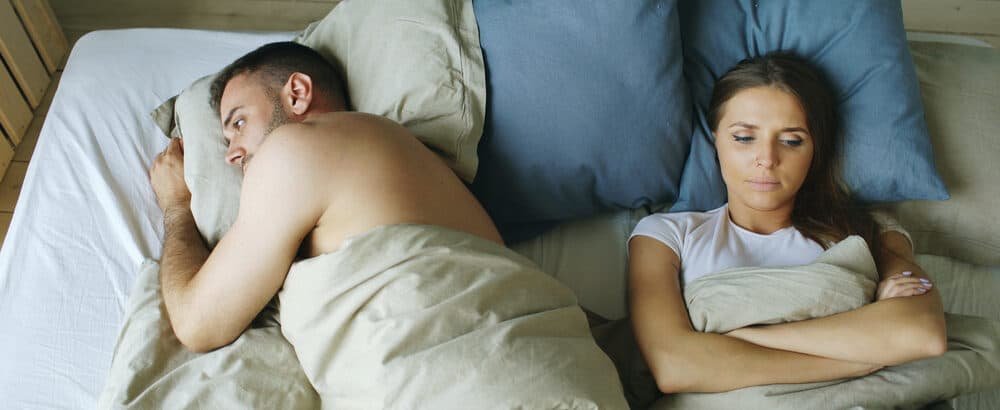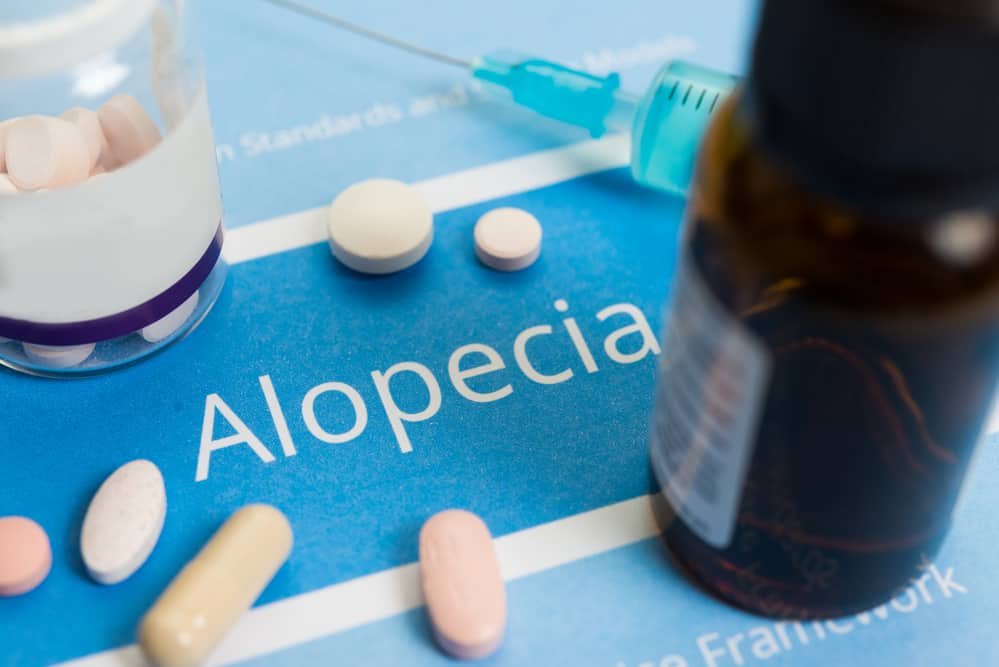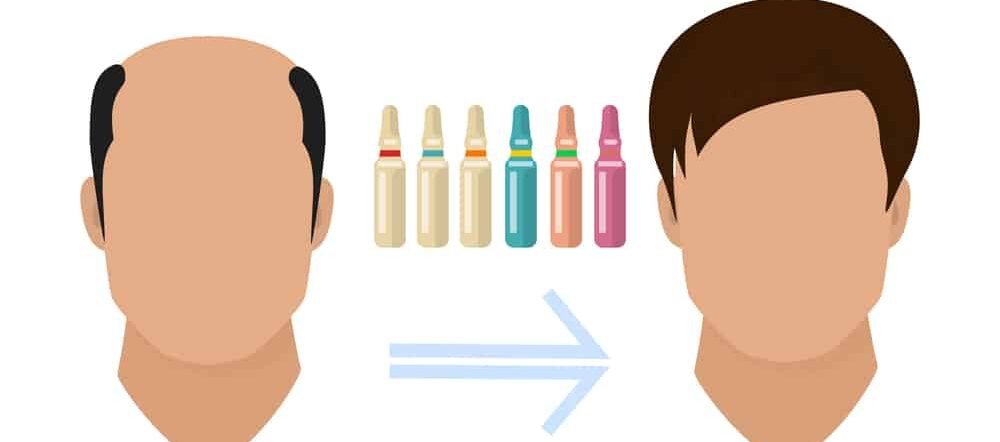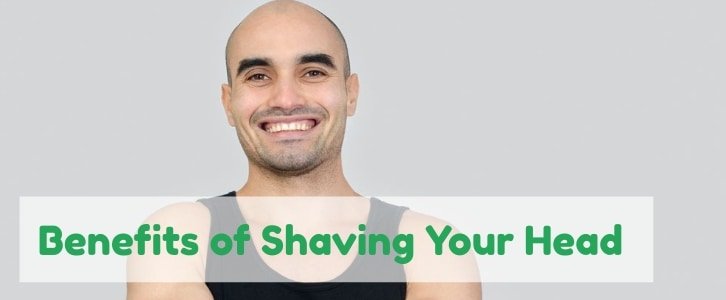Losing one’s hair is quite frustrating.
Experiencing sexual side effects from a hair loss treatment is maybe just as bad.
Using treatments to prevent hair loss is an option that most people consider to fight hair loss. Minoxidil has been used for more than 3 decades now.
We are very clear about Minoxidil’s benefits as they’ve been clarified thousands of times. However, most people’s Minoxidil side effects are still unknown despite being a hugely popular treatment.
Today, we’ll talk about the side effects of Minoxidil. One of the most common doubts regarding the use of this medicine is whether it causes sexual impotence. Keep reading to find out the answer and acquire more information regarding Minoxidil’s possible side effects.
About Minoxidil
In the 70s, Minoxidil was prescribed to people suffering from hypertension due to its vasodilator effect. Over time, patients reported that their body hair started growing in higher quantities and with greater thickness.
Then, Minoxidil‘s use as a lotion as the brand name of Rogaine started being prescribed to patients suffering from hair loss around the 80s decade. This medicine improved hair growth and increased its density. This substance is known to “stimulate” the reproduction of epidermal cells.
Minoxidil is often prescribed to men and women that suffer from androgenic alopecia as it stimulates hair growth. However, even if many years have passed since this drug started being used, we are not sure how it causes such beneficial effects. Some people argue about how the bloodstream improvements may have something to do with it, but nothing is confirmed yet.
Use of Minoxidil
Minoxidil can be found in the form of tablets or a topical solution. Tablets are used if the patient suffers from hypertension, while the topical solution is used as a treatment for alopecia.
The topical solution comes in multiple forms: liquid, foam, gels, lotion, spray. It must be applied to the scalp. The mentioned presentations are the most common, but they can also be found in shampoo and blisters.
Minoxidil in cream is often used for stimulating beard growth. However, it’s crucial to consult with a physician to indicate what the most convenient presentation should be for you, according to the alopecia type you have.
This hair loss treatment is indefinite. Therefore, if you want to continue seeing the positive effects, you should not stop its use unless your physician says so.
Contraindications
There are some situations where the use of Minoxidil can be contraindicated. These situations include:
- Pregnancy and lactation
- If you suffer from scalp damage due to prolonged exposure to the sun, Minoxidil should not be used.
- People who suffer from chronic acne or any other chronic skin condition should not use Minoxidil to cause the aggravation of the existent condition.
- People who suffer from cardiovascular diseases or arrhythmias should consult with a specialist before starting the treatment with Minoxidil.
Does Minoxidil cause sexual impotence?
Unlike popular belief, Minoxidil does not cause sexual impotence. It is scientifically unknown whether this medicine lowers testosterone levels, and therefore, it does not cause erectile dysfunction.
The idea that minoxidil has this side effect could perhaps stem from people confusing it with another hair loss drug—finasteride—which may cause this side effect. Or perhaps the reports from hair loss sufferers on Reddit sharing their horror stories.
About Finasteride
Finasteride, also known as Propecia or Proscar, is an anti-androgen used to treat masculine alopecia. It is a medicine that is used to treat alopecia in men that reduces dihydrotestosterone levels in the body. Its use is never prescribed to treat this condition in women or children.
Finasteride can be effective towards hair loss in men by “blocking” the production of a particular hormone—DHT—that damages the hair follicles in men who are genetically prone to it, which causes the hair follicles to be unable to hold and grow hair and eventually leads to hair loss and balding. However, it may also decrease testosterone levels, and has also been reported that it may increase prolactin levels.
As it happens with Minoxidil, some patients start seeing results with Finasteride after three months of use. You should always use this medicine under medical supervision to avoid the suffering of its side effects or at least have more control over them.
Some of the side effects of Finasteride include the following:
- Inability to have and maintain an erection
- Decreased libido
- Testicular pain
- Decreased ejaculation volume
- Gynecomastia
- Depression
It is often recommended to visit a urologist if you are experiencing one or more side effects listed here. Then, the treatment will be modified to a different dose so that the unwanted side effects can be reduced or controlled at scale.
What are the sexual side effects of Minoxidil?
Minoxidil has side effects you should know about. However, they are specific to people who suffer from particular conditions.
It is known that people with cardiovascular diseases may suffer headaches, increased heart rate during sexual intercourse, and tachycardia.
Generally speaking, Minoxidil may cause dermatitis, itching, and irritation. These effects should disappear once its application is suspended. Furthermore, it can provoke the apparition of unwanted hair. In women, this condition is known as hirsutism, which causes hair to grow on the cheeks and forehead. In men, it is known as hypertrichosis, and it causes hair to grow excessively in the arms.
Remember that the side effects of a particular medication may vary from an individual to another. Minoxidil may be harmful to some people, while others may be using it for years without experiencing side effects or not for prolonged periods.
Conclusion
Although Minoxidil has multiple side effects that vary in each individual, it has been greatly effective in treating alopecia in men and women. Since its action is not specific, it can act in multiple alopecia types with the same effectiveness.
Using Minoxidil as a treatment for alopecia in men has proven to be hugely successful. Still, it does not cause erectile dysfunction or decrease the person’s libido, unlike medicines like Finasteride that may cause those side effects.
Please remember that this article is merely informative. If you have any more doubts about Minoxidil’s use and how it can affect you, I recommend consulting with your physician.




